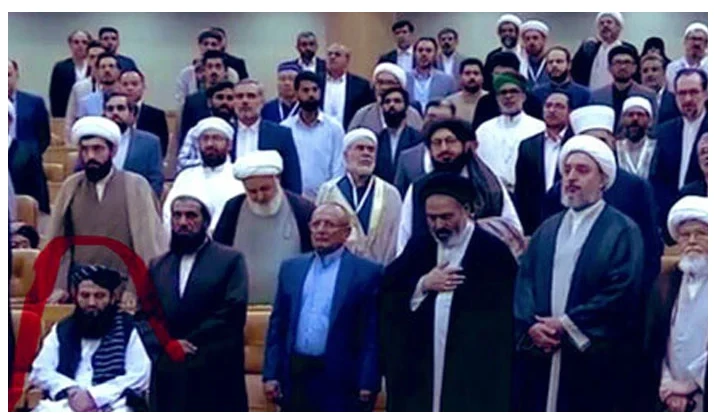Afghan envoy facing music for 'disrespecting' Iran’s national anthem

Stay tuned with 24 News HD Android App

Iran summoned the acting head of Afghanistan's embassy Friday after saying a visiting Afghan official disrespected the country's national anthem by not standing, days after a similar incident in Pakistan.
Following the incident at a conference in Tehran on Islamic unity, the Afghan delegate apologised, but said this was because music in public is banned by the Taliban.
An Iranian foreign ministry statement said a "strong protest" had been lodged after his "unconventional and unacceptable action".
It accused Kabul's representative to the Islamic Unity Conference of "disrespecting the national anthem of the Islamic Republic".
The foreign ministry "condemned this action, which went against diplomatic custom".
Afghanistan's representative remained seated when Iran's national anthem was played, mirroring a similar event involving Afghan officials in Pakistan.
"Apart from the obvious necessity of the guest respecting the symbols of the host country, paying respect to the national anthem of countries is internationally recognised behaviour," Iran's statement added.
Islamabad on Tuesday summoned the Afghan charge d'affaires over "disrespect for the national anthem" by Afghanistan's acting consul general and another official at an event in Peshawar on Monday, Pakistani officials said.
Pakistani media quoted a spokesman for Afghanistan's consulate as saying the officials did not stand because of the music, and that no disrespect was meant.
"Because the anthem had music, the consul general and an official did not stand. We have banned our national anthem because of the music," the Afghan spokesman was quoted as saying.
On Friday the Afghan official in Tehran for the conference posted a video apology, saying he meant no disrespect but that sitting during anthems is their custom.
Shiite-majority Iran shares a 900-kilometre (550-mile) border with Afghanistan, but has not officially recognised Taliban's government since it came to power in August 2021 after US forces withdrew.
